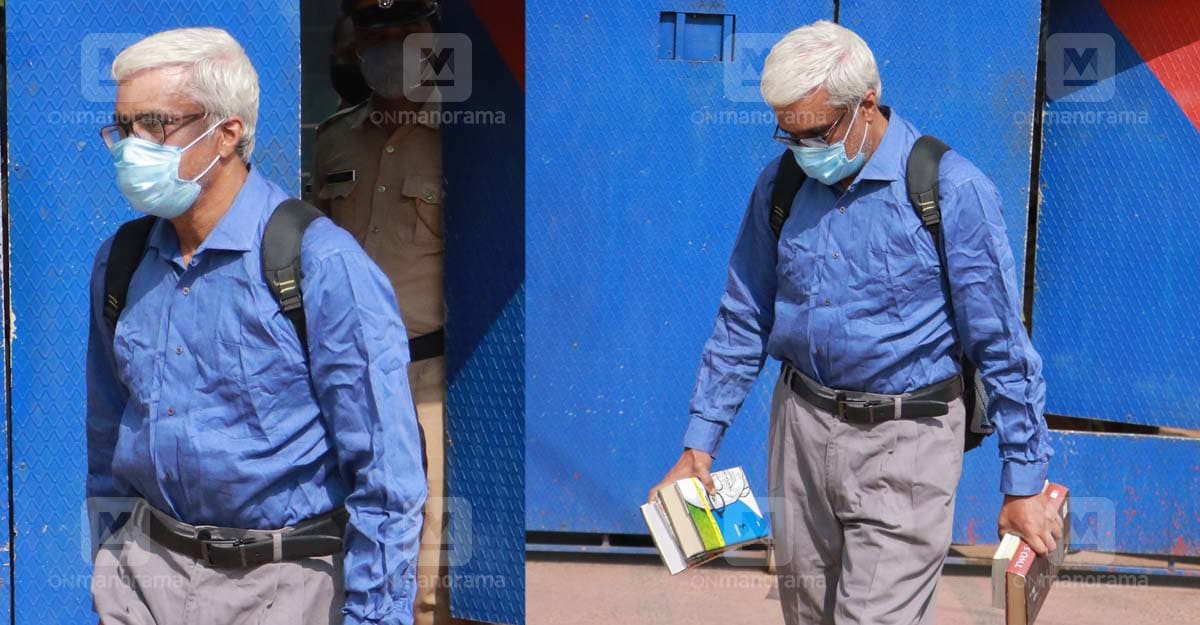Why former UAE diplomats aided gold smuggling by Swapna's racket

Mail This Article
Kannur: Former Consul-General of the UAE Consulate in Thiruvananthapuram and former Admin Attaché aided the smuggling of gold through diplomatic channels due to the easy money in it.
This was revealed in the Customs Preventive Wing’s show-cause notices served to 53 people, including former diplomats.
The notice also said 21 people, including those with hawala links, crowd-funded the smuggling of gold.
Consul-General Jamal al-Zabi wanted money for constructing a house in Dubai and to make business investments in Germany. He had offered Swapna Suresh, a key accused in the case, partnership in his German venture, the notice said.
The Customs said gold was smuggled in through diplomatic baggage 18 times between November 2019 and March 4, 2020. The former diplomat was paid USD 1,000 each for every smuggling instance.
As much as 95.330 kilograms of gold worth Rs 32.4 crore were brought in illegally, the notice said. Another key accused, Sarith PS, reportedly told the Customs that Jamal al-Zabi had offered him a job in the UAE, and asked him not to name the diplomat under any circumstances.
The notice said former Attaché Rashed Khamis Ali Musaiqri Al Ashmia wanted emergency funds to complete building a house at Ras Al Khaimah, after a contractor he had entrusted with the construction went missing with the money.
Al Ashmia, who held the temporary charge of the Consulate, had revealed his requirement to both Swapna and Sarith.
After Jamal al-Zabi’s return to the UAE, Swapna struck a deal with Al Ashmia. The Customs said Al Ashmia himself signed the documents pertaining to diplomatic baggage. Swapna paid him USD 1,500 each for bringing in gold twice in June 2020.
Meanwhile, 71.743 kilograms of gold, including the 30.245 kilograms seized on July 5, 2020, worth Rs 29 crore had been brought into the country.
The Customs said K T Ramees, the link between Swapna, Sarith and Sandeep and smugglers, coordinated the entire operation, funded by 21 people.
A M Jalal, P Mohammad Shafi, E Saidalavi, P T Abdu and T M Samju have been named as the key smugglers. They brought others into the gang.

Sivasankar knew of ‘Consul eating mangoes’
Former Principal Secretary M Sivasankar had planned making an overseas investment jointly with a person identified only as Kesavadas, the Customs said in its notice.
Sivasankar introduced Kesavadas to the Consul-General through Swapna Suresh, which led to the diplomat winning a partnership in a private firm’s UAE business.
The chats between Kesavadas and Sivasankar revealed their plans to make investments in the UAE, the Customs said. However, the notice did not reveal much about Kesavadas, except his name.
Swapna had informed Sivasankar of the illegal activities being carried out under the cover of the UAE Consulate. These activities, including bringing cosmetic items to be sold at Beemapally, and receiving commissions, were codenamed, ‘the Consul is eating mangoes.’
The notice said though Sivasankar had been aware of smuggling gold through diplomatic channels, he denied any knowledge of the activity during interrogation.
Gangs unite to teach moles a lesson
Kannur: Gangs involved in gold smuggling have reached an understanding among themselves to unitedly act against those cheating them.
The understanding was reached after increasing instances of carriers absconding with the contraband, or aiding gold heists. It was learnt that the gangs had decided to teach a lesson to at least some of those moles.
The gangs also suspect that gold robbers or those linked to them are masquerading as carriers. Collectives of small-scale investors in the UAE and Saudi Arabia are the gangs now active in gold smuggling.
It was earlier reported that a few accused persons, jailed in the T P Chandrasekharan murder case, had successfully coordinated such robberies with their associates outside.

